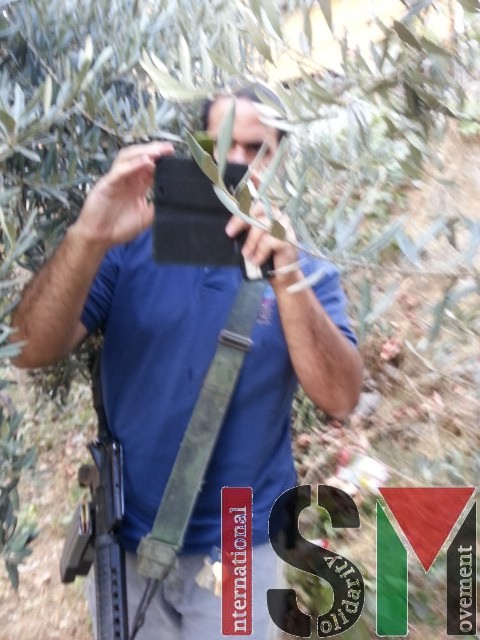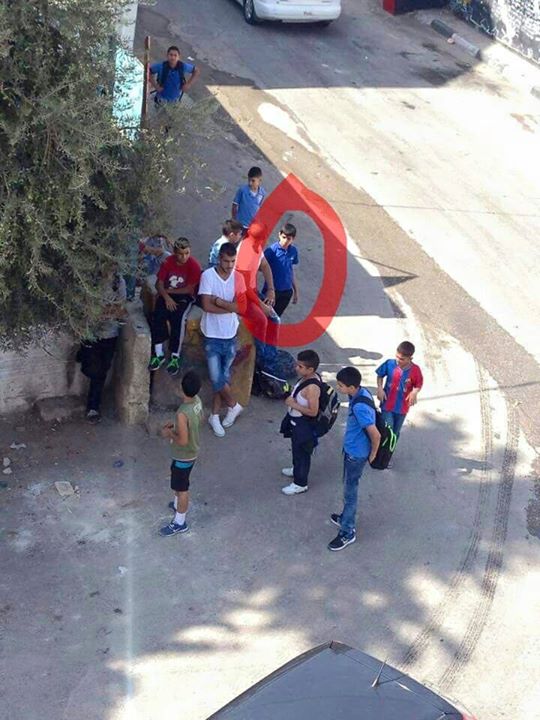Tag: Olive Trees
-
Al-Khalil (Hebron) settlers disrupt Palestinian family’s harvest
19th October 2015 | International Solidarity Movement, Al-Khalil team | West Bank, occupied Palestine Recently weakened by heart attack and subsequent surgery, Hashem made his way slowly down the hill from his home in the Tel Rumeida section of al-Khalil to meet with the group of internationals from whom he requested assistance in picking what…
-
Israeli army prevents farmers to pick olives in Burin
9th October 2015 | International Solidarity Movement, Nablus Team | Burin, Occupied Palestine This Friday morning, at approximately 10:30 am, a group of 6 soldiers came down the mountain from the illegal Israeli settlement, Arousa, in the village of Burin, to prevent the family of Ahmad Mustafa Najjar from picking their olives. Early in the morning,…
-
12 year old Palestinian killed in Bethlehem as violence explodes across the West Bank
5th October 2015 | International Solidarity Movement, Al-Khalil team | West Bank, occupied Palestine Abed al-Rahman Shadi Obeidallah, 12 was still in his school uniform when he was rushed in a civilian car to Beit Jala hospital from Aida refugee camp in Bethlehem today. The boy, from from a Al Kahder village, was shot in the…



